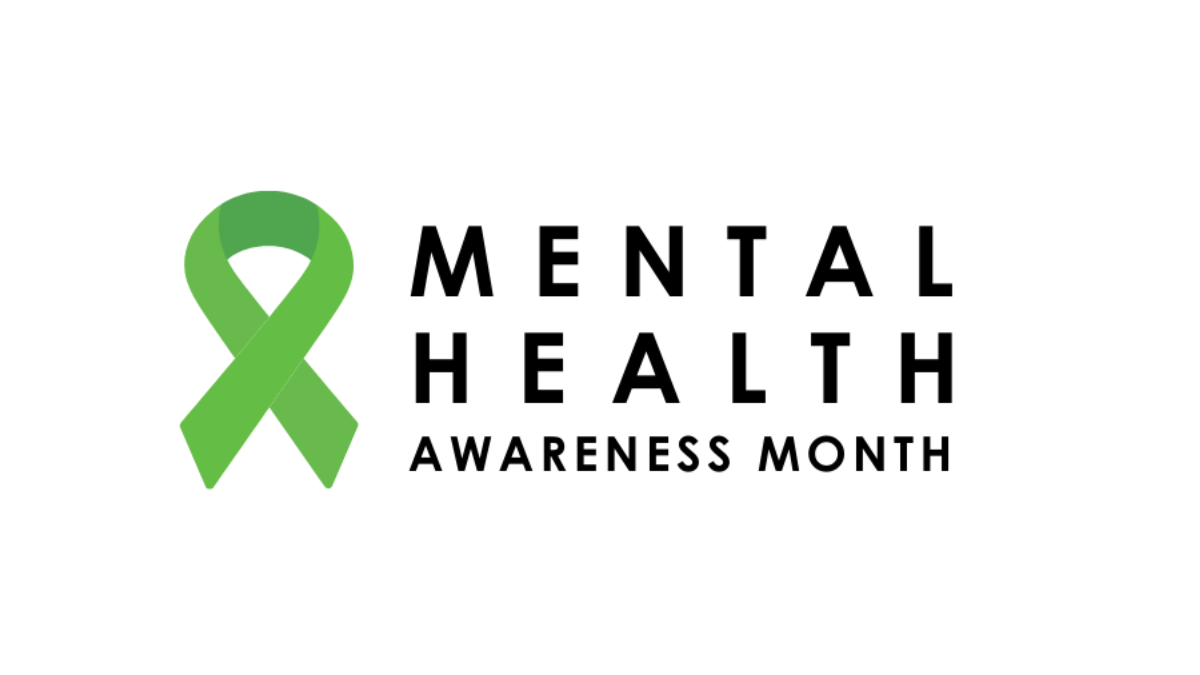May is Mental Health Awareness Month

May is Mental Health Awareness Month! While mental health is important to address year-round, Mental Health Awareness Month provides a dedicated time for people, organizations, and communities to join their voices to broadcast the message that mental health matters.
During mental health awareness month (and every day!) we encourage you to take an active role in raising awareness about mental health, fighting stigma, and advocating for policies that support people with mental health and their families. Please join us this month and continue all throughout the year to share these important messages.
What is Mental Health?
Mental health includes our emotional, psychological, and social well-being. It affects how we think, feel, and act. It also helps determine how we handle stress, relate to others, and make healthy choices. Mental health is an integral part of well-being. It is just as critical as our physical health. Just as we take care of aches and pains and seek support for injuries and illness, we must also tend to our minds.
The brain is an organ; like other organs, illness surfaces when it malfunctions. Disruptions in mood, appetite and sleep, for example, are indicators of a chemical imbalance in the brain. A more accurate representation of mental illness explains that mental health has physical origins. Deepening this understanding will allow us to move away from the misconception that mental health conditions are a choice.
Although the terms are often used interchangeably, poor mental health and mental illness are not the same. A person can experience poor mental health and not be diagnosed with a mental illness. Likewise, a person diagnosed with a mental illness can experience periods of physical, mental, and social well-being.
Good mental health and well-being can be measured by a person’s ability to fulfill key functions and activities, including:
- the ability to learn
- the ability to feel, express, and manage a range of positive and negative emotions
- the ability to form and maintain good relationships with others
- the ability to cope with and manage change and uncertainty
How to Support Your Mental Health and Wellbeing
There are many things that you and your loved ones can do to support mental health and wellbeing. SAMHSA’s eight dimensions of wellness model reminds us that feeling well is related to many different life factors. And therefore, you can improve your sense of wellbeing by making changes in any or all of those areas. For example, you might make some changes in your routine (eating less processed food and more fruits and vegetables, getting more exercise, more outside time, or more undisturbed nighttime sleep); or changes in how you think about your experiences (you are upset because you think ‘that thing’ is bothering you; when in fact, YOU are actually bothering YOURSELF about ‘that thing’- ‘the thing is just being the thing!)
Mental Health Resources
Sometimes, self-help strategies are not enough and we need support and more guidance to feel better. If you or a loved one are struggling with mental health or substance use, there are 25 Community Behavioral Health Centers (CBHCs) in communities across Massachusetts that offer immediate care for mental health and substance use needs, both in crisis situations and the day-to-day.
And the good news is that with the many advances in treatment in the past 20 years there are many evidence-based supports available to help people recover - medications, talk therapy, experiential therapy, peer support, and more! Learn more about evidence-based treatment
BHN WellBeing is the CBHC serving children, youth, adults, and families in English and Spanish throughout 17 cities and towns in the Springfield and Westfield area providing care when you need it.
For help:
- Call 413-301-WELL (9355) for information or 24/7 Crisis services or;
- Walk in at our two BHN WellBeing locations: 417 Liberty Street, Springfield, MA or 77 Mill Street, Westfield, MA
- Hours: Mon. - Fri: 8 am - 8 pm & Sat & Sun: 9 am - 5 pm
- Visit bhninc.org/wellbeing for more information.
Additional Resources:
- Massachusetts Behavioral Health Help Line: Call 833-773-2445 or visit masshelpline.com to get connected to mental health and substance use resources and CBHC's throughout the state.
- National Suicide Prevention Lifeline: Call or text
988 to be connected to trained counselors
SHARE
Topics
Stay Up to Date!
Sign-up for our newsletter to receive news and updates from BHN.





